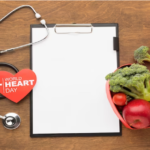
The Best Foods and Nutrients to Boost Your Vitality: Eating for Energy
Do you experience fatigue and sluggishness all day long? Do you find it difficult to meet the demands of your hectic life? If so, you are not by yourself. The good news is that there are easy dietary modifications you can adopt to help enhance your vitality and feel more energised. Low energy levels are a common problem.
The best foods and nutrients to include in your diet to boost your energy and enhance your general health will be discussed in this post. We’ll cover everything from macronutrients like protein, healthy fats, and carbohydrates to micronutrients like vitamins and minerals that are essential for generating energy. We’ll also cover lifestyle aspects that can affect your energy levels, such as advice on when to eat and drink.
However, let’s first take a time to comprehend why diet is so crucial for our vigour and energy. Our bodies obtain the fuel they require from the food we eat, including the energy we require to get through the day. Our energy levels, attention, and general wellbeing can all be enhanced by eating a diet high in nutrients that promote energy. So read on to find out how to eat for energy and vitality, whether you want to enhance your sports performance or simply get through your workday more easily.
Foods for Energy
Understanding the role that macronutrients play in giving our bodies the fuel they require to function efficiently is crucial when it comes to eating for energy and vitality. Three essential macronutrients—carbohydrates, protein, and good fats—are essential for the generation of energy.
Our bodies primarily obtain their energy from carbohydrates, which can be further split into simple and complex carbohydrates. Simple carbs, like sugar, give you a short energy boost but might cause crashes later. Contrarily, complex carbs, such as whole grains, offer a slower release of energy, assisting in maintaining energy levels for extended periods of time.
As it aids in the development and maintenance of bodily tissues, protein is another crucial macronutrient for the creation of energy. Lean meats, eggs, beans, and nuts are all excellent sources of protein and can all help increase energy levels throughout the day.
When it comes to energy, healthy fats are sometimes disregarded, although they are crucial for maintaining our sensation of fullness and satisfaction. Foods with healthy fats, such as avocado, almonds, and olive oil, can offer a consistent supply of energy while also improving heart health and cognitive performance.
You may contribute to ensuring adequate energy levels throughout the day by including a well-balanced combination of carbohydrates, protein, and healthy fats in your diet. Therefore, the next time you feel lethargic, think about opting for a snack or meal that has a variety of these crucial macronutrients.
Eating for Energy
Some meals can be especially helpful for increasing energy and promoting general vitality. Iron, a mineral that helps transfer oxygen to our cells and encourage energy generation, is abundant in leafy greens like spinach and kale. Nuts and seeds are also excellent sources of protein and healthy fats that can provide you long-lasting energy. Brown rice and quinoa are two examples of whole grains that are a great source of complex carbs, which provide you energy that lasts all day.
Along with macronutrients, vitamins and minerals are also essential for the creation of energy. While minerals like magnesium and potassium are involved in the function of the muscles and the nervous system, B vitamins like B12 and folate are crucial for energy metabolism. B vitamins are abundant in foods like salmon, eggs, and leafy greens, whereas potassium-rich foods include bananas and sweet potatoes.
Try including spinach and nuts to your morning smoothie or making a quinoa and veggie bowl for lunch to include these energy-boosting foods in your diet. For a quick energy boost, try a snack of raw vegetables with hummus or almond butter. For supper, try grilled salmon with sweet potatoes for a nutrient-rich dish that will keep you feeling energised all night.
Drink Water for Energy
The key to sustaining your energy and vitality throughout the day is to stay well hydrated. Our bodies have to work harder to carry out essential tasks when we’re dehydrated, which can make us feel lethargic and exhausted. It’s crucial to consume enough water throughout the day to prevent this.
The amount of water that each individual requires can vary depending on their activity level and the weather, but as a general rule, you should aim for eight 8-ounce glasses of water or more each day. Additionally hydrating drinks like coconut water and herbal teas can support general hydration levels.
In addition to drinks, some foods, including watermelon and cucumbers, which both contain over 90% water, can also help you stay hydrated. Particularly in the warmer months or when exercising, including these foods in your diet will help you stay hydrated. You can support optimum energy levels and general health by drinking enough water.
When to Eat for Energy
Maintaining constant energy levels throughout the day depends in large part on when you eat. It is possible to prevent energy crashes and encourage sustained energy by eating smaller, more frequent meals to help maintain blood sugar levels constant.
Planning and preparation ahead of time will help you have energising meals and snacks available throughout the day. This may entail meal planning for the week so that you have wholesome meals available to grab and eat when you’re busy, or it may entail packing healthy snacks like nuts and fruit to take with you on the move.
Incorporate a range of nutrient-dense foods into your meals and snacks, such as leafy greens, whole grains, and lean protein sources like chicken or tofu, in addition to planning ahead. You can support optimum health and wellbeing by providing your body with nourishing foods at regular intervals throughout the day to assist maintain constant energy levels.
The Effects of Lifestyle on Energy
Other lifestyle choices can also be important in sustaining appropriate energy levels in addition to nutrition. For instance, exercise can aid improve blood circulation and oxygen delivery throughout the body, resulting in more vigour and energy. Additionally, getting enough sleep is crucial since it enables the body to heal and replenish and helps lessen tiredness and exhaustion. Managing stress is a crucial component as long-term stress can gradually sap one’s energy.
By supplying the nutrition and energy needed to support physical exercise, encourage restful sleep, and counteract the negative effects of stress, a balanced diet can support these lifestyle elements. For instance, including foods high in tryptophan and magnesium, such spinach and turkey, can aid in promoting calm and sound sleep. Eating foods rich in antioxidants and omega-3 fatty acids, such as salmon and blueberries, can also benefit stress management by reducing inflammation. We may improve our general health and wellness by approaching energy and vitality holistically.
Conclusion
In conclusion, it is crucial to retain optimum energy and vitality throughout the day if we want to feel our best and reach our objectives. There are various ways we may support our bodies and minds for lasting energy and wellbeing, from the macronutrients we eat to the lifestyle variables we value.
Important things to remember from this article include the value of eating a balanced diet full of whole foods and key nutrients, staying hydrated, planning your meals, and giving lifestyle aspects like exercise, sleep, and stress management first priority.
We may maximise our energy levels and feel more vibrant and alive by putting nutrition first and making tiny adjustments to our everyday activities. Every action we take towards improved nutrition and self-care, whether it’s including more leafy greens in our meals, drinking more water each day, or making time for regular exercise and relaxation, can have a good effect on our energy and vitality.
I urge readers to put some of the advice from this article into practise and to pay attention to how their bodies react. You may reach your greatest potential for energy and vitality by making tiny changes and experimenting with what works best for you.
Read More You May Like:
- How to Beat Sugar Cravings: Tips and Tricks to Break the Cycle
- Intermittent Fasting: The Ultimate Beginner’s Guide to Losing Weight and Improving Health
- Mediterranean Diet: A Delicious and Healthy Way to Eat for Life
- Plant-Based Diets: What You Need to Know to Improve Your Health and the Environment
- The Anti-Inflammatory Diet: Foods to Eat and Avoid for Better Health and Reduced Inflammation








